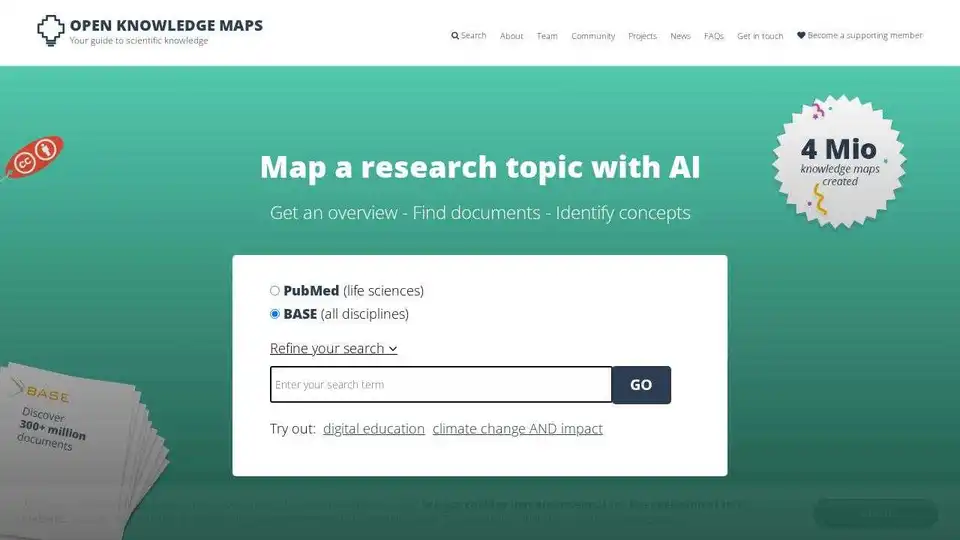
Open Knowledge Maps
Overview of Open Knowledge Maps
Open Knowledge Maps: Revolutionizing Scientific Knowledge Discovery with AI
What is Open Knowledge Maps?
Open Knowledge Maps is a revolutionary search engine powered by artificial intelligence, designed to transform how researchers, students, and professionals navigate the vast landscape of scientific knowledge. It offers a visual and intuitive approach to literature search, making it easier to discover relevant research, identify key concepts, and gain a comprehensive overview of any research topic. As the world's largest AI-based search engine dedicated to scientific knowledge, Open Knowledge Maps significantly enhances the visibility of research findings for both the scientific community and the broader society.
How Does Open Knowledge Maps Work?
Open Knowledge Maps uses advanced AI algorithms to process and visualize scientific information. Here’s a breakdown of how it works:
- AI-Driven Search: Users start by entering a query into the search bar. Open Knowledge Maps utilizes AI to analyze the query and identify relevant research papers from databases like PubMed (for life sciences) and BASE (covering all disciplines).
- Visual Overview: Instead of presenting a list of search results, Open Knowledge Maps generates a visual map of the topic. This map displays clusters of related papers, allowing users to quickly understand the main themes and subtopics within the research area.
- Concept Identification: The AI identifies and highlights important concepts within the research papers, making it easier for users to grasp the key ideas and relationships between different studies.
- Refine and Explore: Users can refine their search using filters and explore the map to find the most relevant documents. The interactive nature of the map allows for a more dynamic and engaging research experience.
Key Features and Benefits
- Visual Literature Search: Provides a visual representation of research topics, making it easier to identify relevant papers and understand the overall landscape of the field.
- AI-Powered: Uses artificial intelligence to analyze and organize scientific information, ensuring accurate and relevant search results.
- Comprehensive Coverage: Aggregates data from multiple sources, including PubMed and BASE, to offer a broad view of scientific knowledge across various disciplines.
- Open and Non-profit: As a charitable non-profit organization, Open Knowledge Maps is committed to providing free and open access to scientific knowledge, promoting inclusivity and equity.
- Custom Integrations: Offers custom services that allow organizations to embed Open Knowledge Maps components into their own discovery systems, enhancing their research capabilities.
Why is Open Knowledge Maps important?
Open Knowledge Maps addresses several critical challenges in scientific research and discovery:
- Information Overload: With the exponential growth of scientific publications, it's becoming increasingly difficult for researchers to stay up-to-date in their fields. Open Knowledge Maps helps users quickly identify the most important and relevant papers.
- Limited Visibility: Many valuable research findings remain hidden or difficult to discover using traditional search methods. Open Knowledge Maps increases the visibility of these findings, ensuring that they reach a wider audience.
- Interdisciplinary Research: By providing a visual overview of research topics, Open Knowledge Maps facilitates interdisciplinary collaboration and knowledge sharing.
User Testimonials and Support
Here's what users and supporters are saying about Open Knowledge Maps:
- Dr. David Johann, ETH Library, ETH Zurich: "We joined Open Knowledge Maps as a Supporting Member because it is an innovative tool for literature search and we are eager to support the further development of Open Knowledge Maps."
- Girija Goyal, ReFigure Co-Founder: "I love how OKMaps breaks down the papers into clusters allowing me to identify themes in the literature and focus on papers that are most pertinent for my work."
- Dr. Andrea Hacker, University Library Bern: "Open Knowledge Maps is a considerable reinforcement in the areas of open science & open access, which are central to our research services."
- Jean-Claude Burgelman, Frontiers Policy Labs: "Now that science gets more and more open, we need ways to visualize it in a relevant way. That's why I support OKMaps."
How to Use Open Knowledge Maps
- Visit the Website: Go to the Open Knowledge Maps website.
- Enter Your Search Query: Type your research topic into the search bar.
- Select a Data Source: Choose either PubMed (for life sciences) or BASE (for all disciplines).
- Explore the Map: Review the visual map generated by Open Knowledge Maps. Click on clusters and individual papers to learn more.
- Refine Your Search: Use filters and keywords to narrow down your search and find the most relevant documents.
Conclusion
Open Knowledge Maps is an indispensable tool for anyone involved in scientific research. By leveraging the power of AI, it provides a visual, intuitive, and comprehensive way to explore scientific knowledge, making research more efficient and effective. Whether you're a student, researcher, or professional, Open Knowledge Maps can help you stay informed, discover new insights, and make a meaningful impact in your field. Consider becoming a supporting member to contribute to the sustainability and growth of this valuable resource.
Best Alternative Tools to "Open Knowledge Maps"
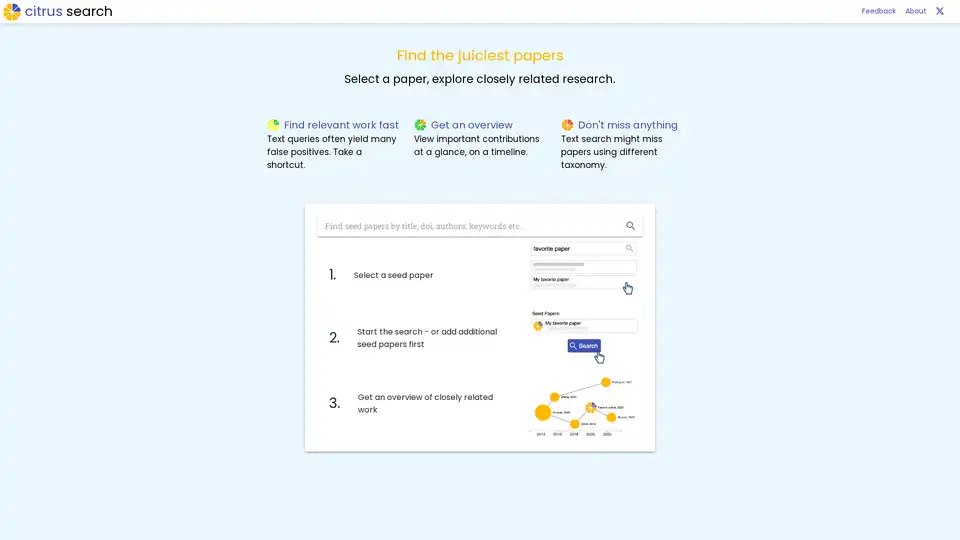
Discover relevant scientific papers quickly with Citrus Search, an AI-driven tool that uses similarity measures like citation networks and content analysis to provide overviews of related research from over 200 million publications.
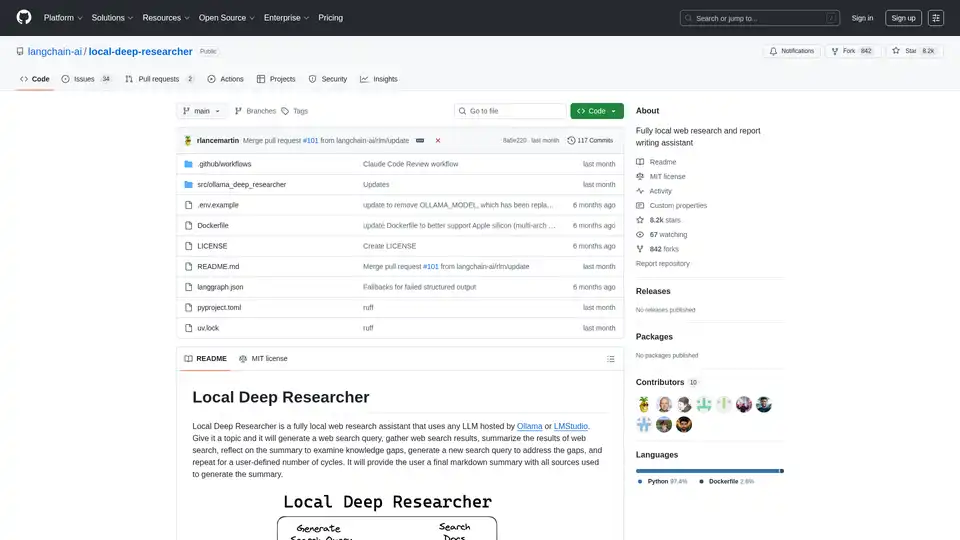
Local Deep Researcher is a fully local web research assistant that uses LLMs via Ollama or LMStudio to generate search queries, gather results, summarize findings, and create comprehensive research reports with proper citations.
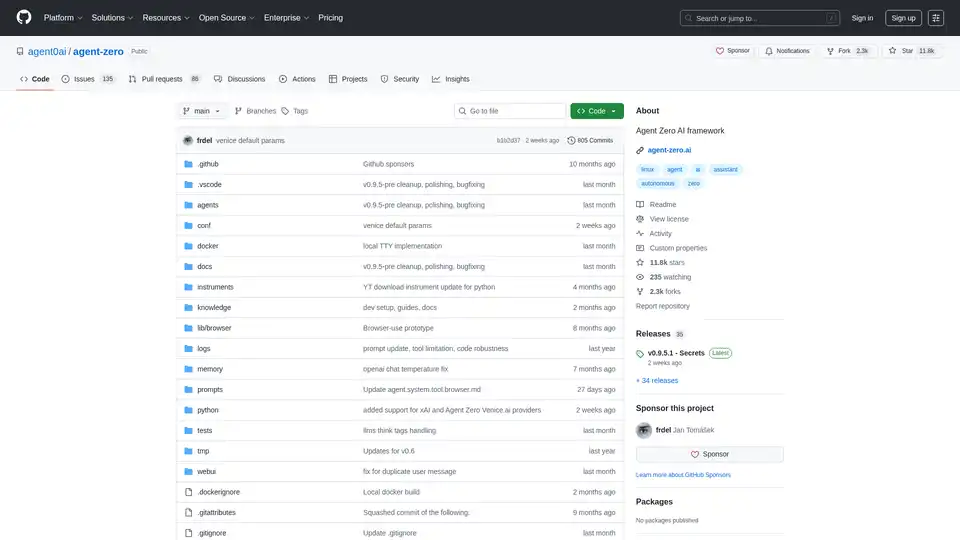
Agent Zero is an open-source AI framework for building autonomous agents that learn and grow organically. It features multi-agent cooperation, code execution, and customizable tools.
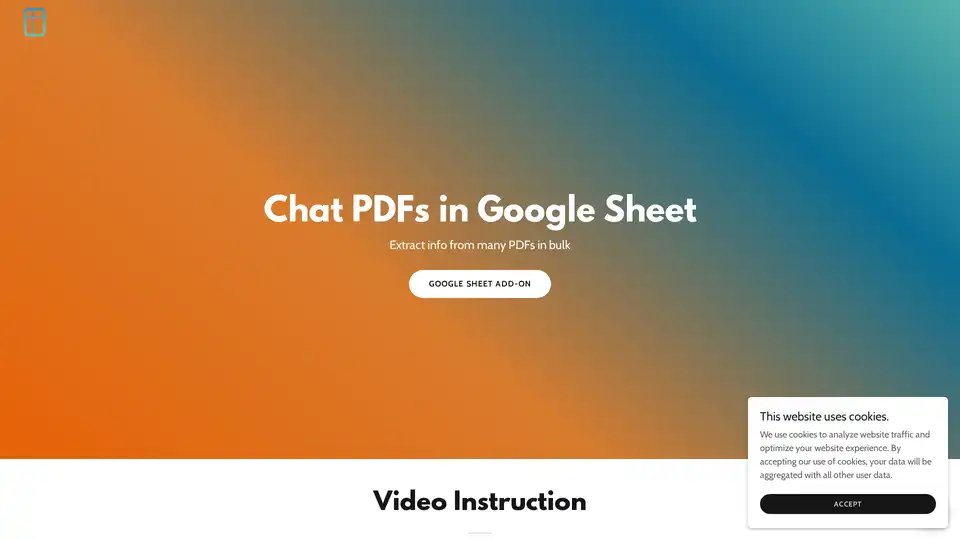
PDF AI Sheet is a powerful Google Sheets add-on for chatting with PDFs and extracting bulk information. Upload files, generate IDs, and use simple formulas to query multiple documents efficiently with AI.
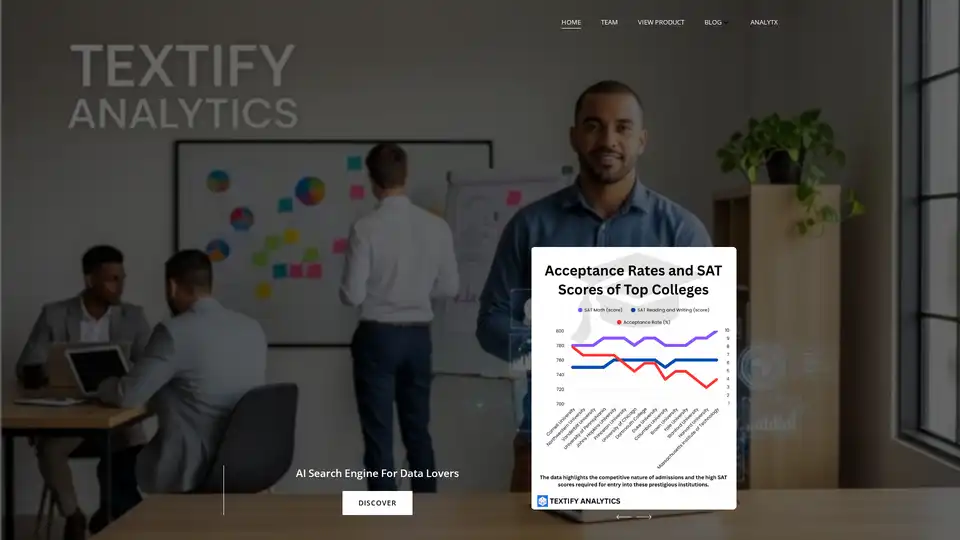
Unlock the power of your data with Textify Analytics! Leverage cutting-edge generative AI to enhance your analytics capabilities.
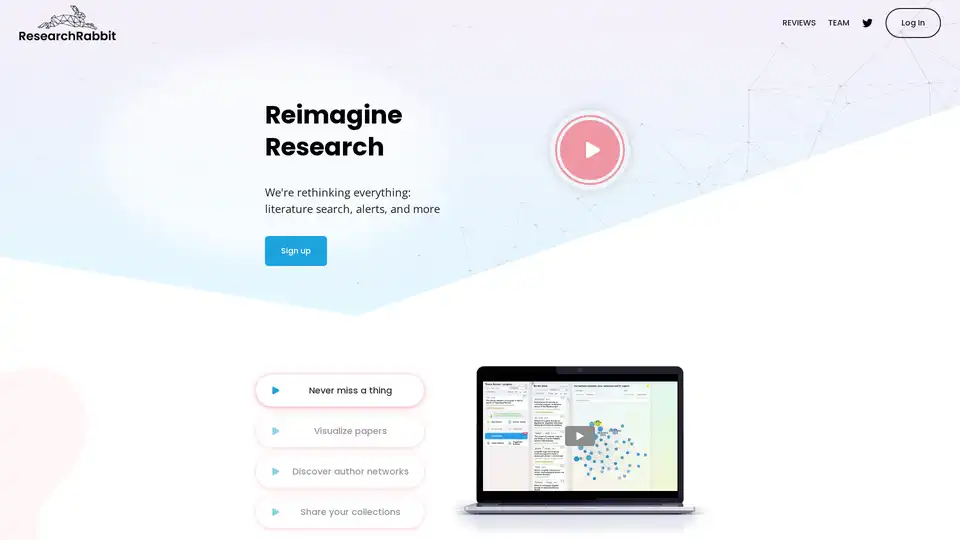
Save hours on your literature review. Use ResearchRabbit to find related papers, build citation maps, and track research trends — powered by AI.
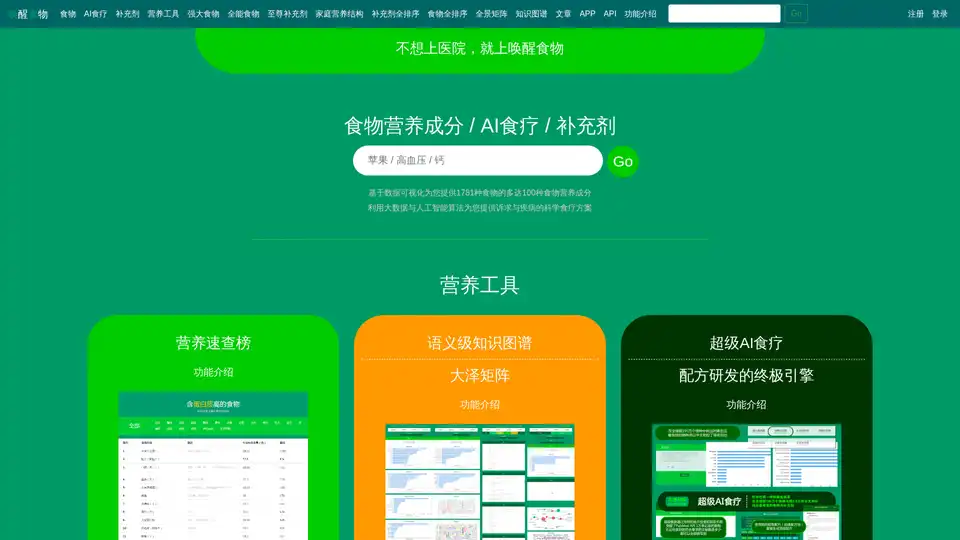
Wake Up Food uses AI and data visualization to deliver comprehensive food nutrition breakdowns and science-based dietary therapy plans for better health management.
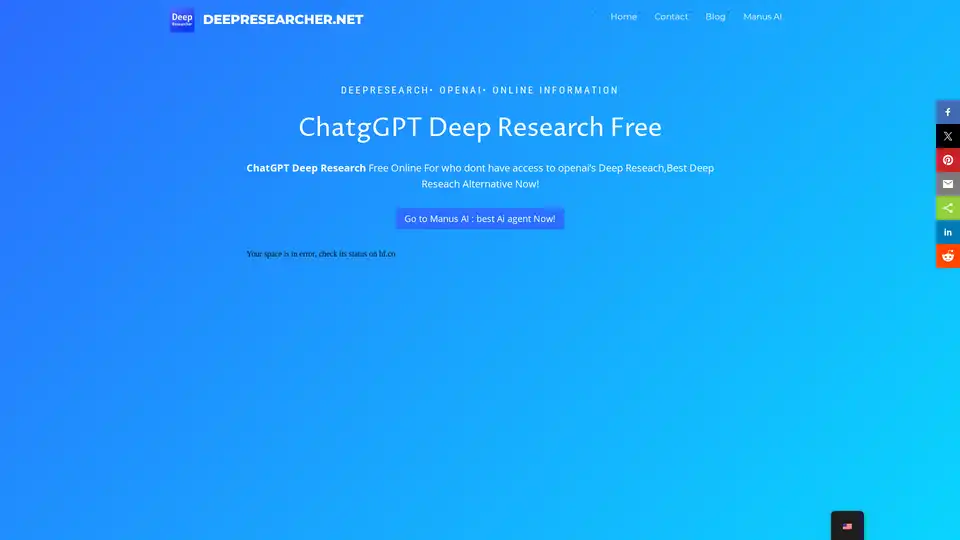
Discover ChatGPT Deep Research Free, the top online alternative to OpenAI's Deep Research for those without access. Perform in-depth AI-powered web research, generate detailed reports with citations, and explore complex queries efficiently—all for free.
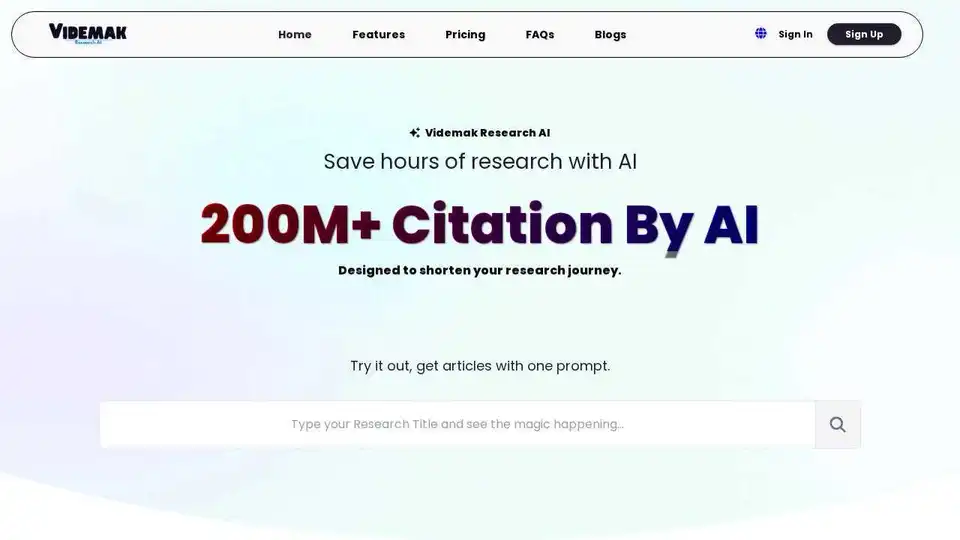
Videmak Research AI: AI-powered research tools to save hours on literature search, review, proposal generation, and data analysis.
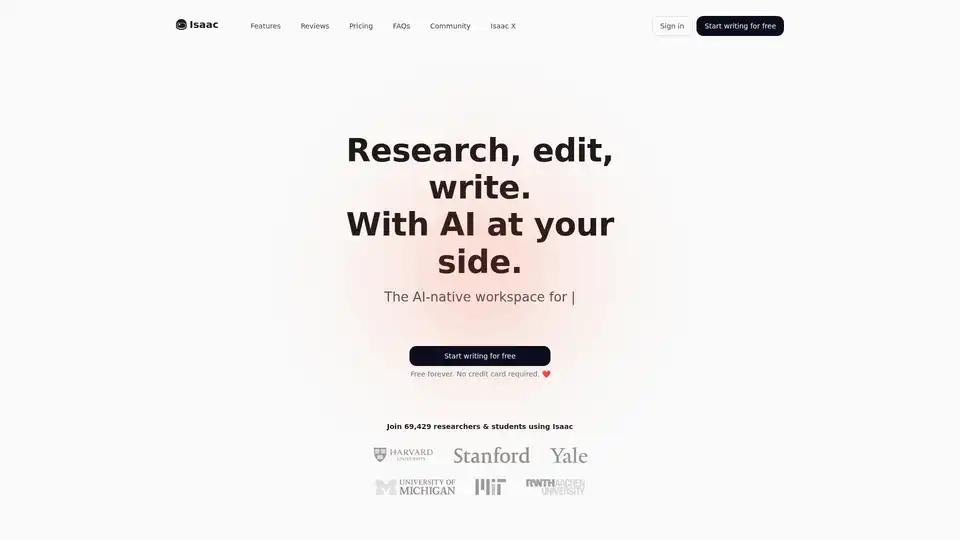
Isaac is an AI-powered research assistant designed for academic writing, offering literature search, AI-supported writing, and automated workflows to streamline your research.
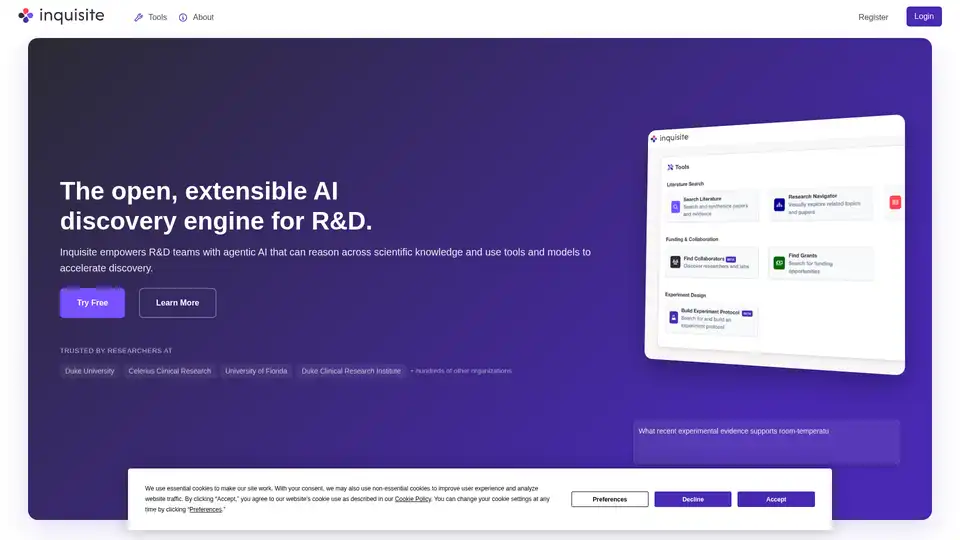
Inquisite is an AI-powered discovery engine for R&D, empowering teams with tools to reason across scientific knowledge, accelerate research, find collaborators, and stay updated on AI applications in science.

FlashPaper.ai: Write undetectable AI academic essays & research papers with advanced humanization & citation. Ideal for students, researchers & professionals.
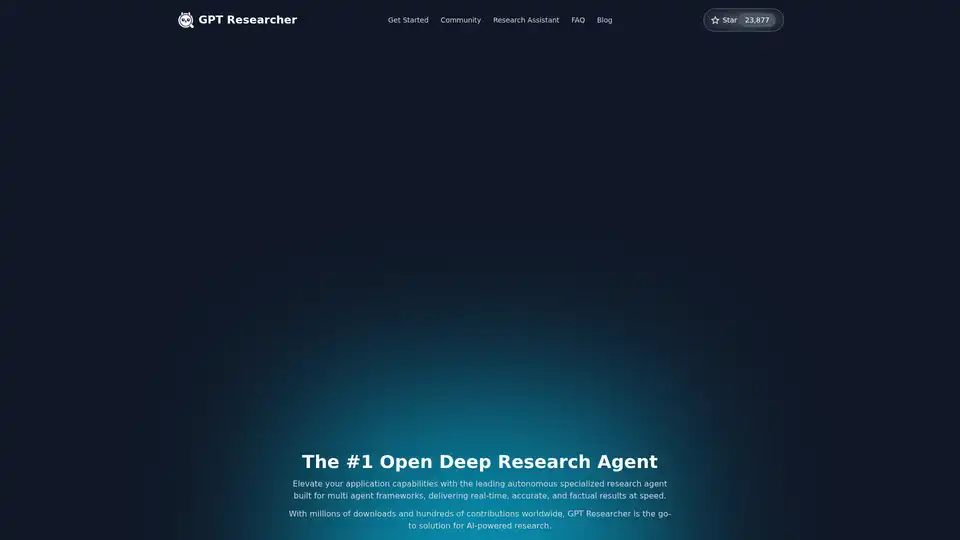
GPT Researcher is an open-source AI research assistant that automates in-depth research. It gathers information from trusted sources, aggregates results, and generates comprehensive reports quickly. Ideal for individuals and teams seeking unbiased insights.
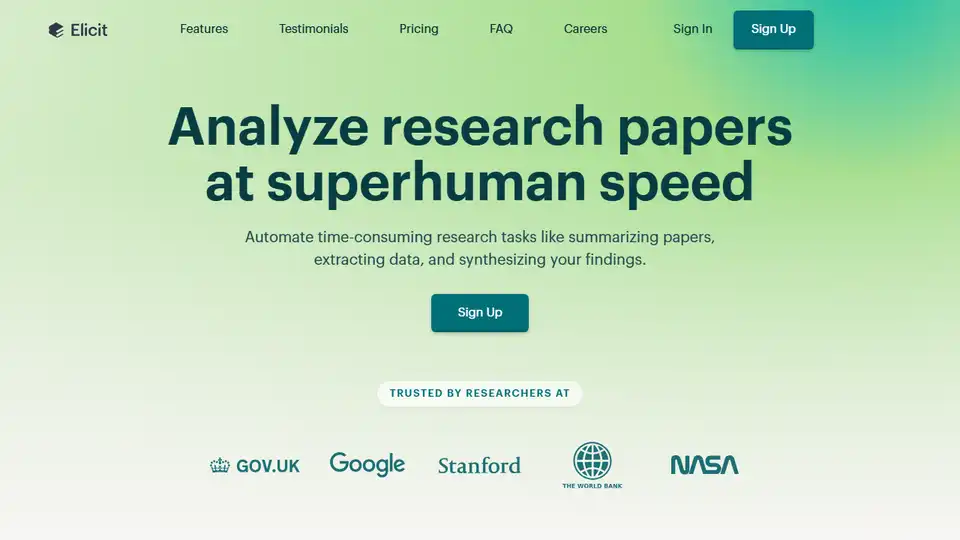
Elicit is an AI research assistant that helps you search, summarize, extract data from, and chat with over 125 million research papers, trusted by over 2 million researchers.
